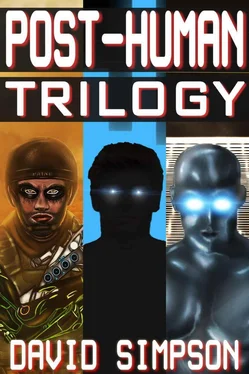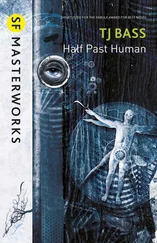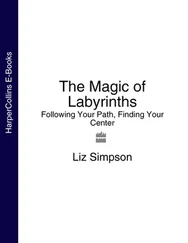POST-HUMAN
TRILOGY
by
David Simpson
A message for you from the author:

Hi! Thank you so much for reading my book! I hope you enjoy it. It is always an honor when someone takes the time to read one of my novels and I feel humbled and thankful. I owe you one! If you do enjoy the book, please remember to tell a friend or two (or two thousand) about it. Best of all is a positive review on Amazon.com. At this stage in my writing career, word of mouth is better than gold and is the best way for me to reach a large audience and achieve my dream of writing full time one day soon.
I want to be available and interactive with my readers, so you can actually friend me on Facebook, “like” the Facebook pagefor Post-Human , read my blog, follow me on Twitter, or check out my website. I’m also on goodreads.comand love to hear from readers and correspond with them about their experiences with my books.
So, thanks again, and hopefully, this will be the beginning of a long, rewarding, and beautiful relationship between reader and author.
Yours,
David Simpson
Thank you to my editor, Autumn J. Conley, for being so thorough, creative, and awesome.
Thanks also to my beta readers, Curtis Hox (the awesome pro), Patrick Weddell (my technical advisor), Matthew Drummey (my gracious reader), and Jeremiah Wood (my military expert).
Thank you also to Sandra and Brian Degrechie, Melanie Klein, Aria Cheng, Sanha Cho, Daniel Lee, and Lisa Kelly-Wilson for allowing me the use of their names.
Thank you to the hundreds of supportive readers who have taken time out of their busy lives to leave positive reviews on Amazon. I owe so much to you. Thank you also to the tens of thousands of people who have downloaded copies of this series in the last few months. I’m blown away.
And lastly, thank you to my wife, Jennifer, who makes these books possible. I can’t believe how much work you put into them and how incredible your support is. You’re the coolest woman in the universe, and all other universes too!
Interviewer: With us is presumptive Presidential nominee, Senator Morgan, for his first major interview since sweeping the Super Tuesday primary contests less than twenty-four hours ago. Congratulations on your victories, Senator and for locking down the nomination so quickly.
Morgan: Thank you very much, Anderson.
Interviewer: Now that your opponents have suspended their campaigns, are you surprised at all with how quickly you’ve managed to dispatch your competition? You were, after all, facing two candidates that were far better funded than yourself throughout most of the early primary season. Yet here we are in the middle of March, and you’re already uncontested and headed for the general election.
Morgan : I’m not surprised at all, actually, given that the stakes were so high. The choice was crystal clear for voters, and they resoundingly chose to cherish and protect human life. No amount of funding would have been enough to confuse the issue for the American people in the primaries, and no amount of funding will be enough to confuse it for them in the general election either.
Interviewer : By ‘protecting human life,’ you are, of course, referring to your signature issue—that being that you want to outlaw what is known as strong artificial intelligence .
Morgan : It’s not just my signature issue—it’s the most important issue in the history of our species. It’s about species dominance—
Interviewer : And the ‘history of our species’ is 6,000 years? Since Adam and Eve?
Morgan : Listen, Anderson, I’m not going to play that game. This is too important—
Interviewer : I’m just trying to clarify—
Morgan : No, you’re not. You’re doing a hit job on me, as I knew you would.
Interviewer : I’m just clarifying—
Morgan : You’re doing a hit job for the incumbent—the President of the United States—as I expected.
Interviewer : Senator, you said during the primaries that you believed in Adam and Eve—
Morgan : I’m not going to be debating theology or my personal religious beliefs with you, Anderson. I am not taking that bait. What I am going to do is voice the concerns of the majority of Americans, whether your friend the President likes it or not.
Interviewer : I cannot deny, Senator Morgan, that you have voiced the concerns of about half the American electorate. Stats have shown that 47 percent of Americans say they strongly oppose the development of strong A.I., which is part of why you were able to use your unofficial status as the head of the Purist movement in the United States to beat back your better-funded opponents.
Morgan : The Purist movement is bigger than any one man.
Interviewer : Well, it may be bigger than you, sir, but you must admit that it was your wedge issue.
Morgan : You think you’re so clever, don’t you?
Interviewer : Excuse me?
Morgan : You do. Admit it. You ask me questions and smirk away, but you have no idea what’s coming. You and your pseudo-intellectual establishment. The people of this country know what’s coming. They know the choice that they have in this election. That’s why I accepted the invitation to be here today. No amount of personal character assassination against me is going to confuse this issue in the minds of the American public.
Interviewer : Okay, so let’s discuss the issue at hand, then.
Morgan : All right.
Interviewer : It’s your position that the United States should use its power within the new Democratic Union to push for a ban on artificial intelligence worldwide, correct?
Morgan: Let’s be crystal clear, because this is a crucial point.
Interviewer: Okay.
Morgan: It’s not my position that we should use our power to push for a ban—it’s my position that we should use our power to insist on a ban. And I am not personally against the development of artificial intelligence. A.I. is all around us—
Interviewer: Yes, I was going to ask you about your own personal use—
Morgan: I’m not against artificial intelligence. What I’m against is strong A.I. I am against artificial intelligence that is capable of passing the Turing test and that has the potential to become infinitely more intelligent than human beings.
Interviewer: But, Senator, A.I. is already stronger than us at most types of thinking—
Morgan: Most types of thinking? I don’t know where you’re getting your information, Anderson, but that’s simply not true.
Interviewer: Okay—many types of thinking—is that a fair statement?
Morgan: It’s faster, sure.
Interviewer: So, if computers have already surpassed us in many respects, isn’t the Turing test an anthropocentric and, therefore, irrelevant way of evaluating—
Morgan: No, it’s not. The Turing test determines whether or not a computer is conscious. That’s the whole point of it.
Interviewer: Don’t you think that might be debatable?
Morgan: We don’t have time for that type of academic debate.
Interviewer: No time for debate, Senator?
Morgan: The Turing test is the only agreed-upon—
Читать дальше













